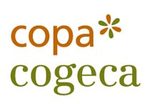|
|
| 06 nov 2020 |
09:34 |

|
European honey producers feel the sting
One bad year follows another for European beekeepers. 2020 marks a new negative record for the sector with a drop of 40% in honey harvests. The EU, that is not self-sufficient, will only provide 40% of the honey placed within the EU market. Tense climate conditions have affected honey producers in most EU countries with the reduction of flowering periods. A new blow for a sector that suffers from deep and structural market distortions as evidenced by the volatility of the markets despite the low volumes produced.
|
|
Because of heavy rain and floods in Central and Eastern Europe and an important drought in July, the situation observed by European beekeepers has never shown such strong disparities across member states. As main producers are located in Eastern and Southern Europe, the Copa and Cogeca Honey Working Party expects an unprecedented drop in production with the near absence of certain honeys from these regions, such as acacia honey. In Hungary alone, the acacia crop was only 10% of the normal harvest and the harvest of all flowers was around 30% compared to that of normal quantities. In Austria, the professionals claim such bad harvests have not been registered in decades. Very consistent drops were registered in Portugal (-80%) and in Italy (in the South, between -70% and –80%).
While Europe is in an under-production capacity considering its internal demand, such low yields should allow producers to expect a rise in prices. Yet this is not the case. The honey prices in the main importing countries keep falling. In addition, without proper tools, the future of beekeepers is in danger: the absence of a strong origin labelling and the adulteration of honey that reached levels very difficult to be detected, represents two big threats to which European legislators have to take serious measures.
For Etienne Bruneau, Chairman of the Honey Working Party at Copa-Cogeca, “Last year we were already sounding the alarm by asking the European Commission to set up an emergency action plan. It is clear that the situation is not getting better, it is getting worse. People need to understand that we are currently talking about the survival of 10 million hives in the EU. 10 million hives that enable 650,000 beekeepers to make a living, millions of farmers to pollinate their crops and everyone to benefit from the ecosystem services provided by bees. This situation is therefore threatening well beyond the stakes of our sector!”
With regard to the expected measures Etienne Bruneau said “The CAP fights against the detrimental effects of volatility on the market of animal products such as milk or meat. There is an urgent need for such risk management and promotion measures for European products to be put in place for the sector in the same way as the indication of origin for honey products and stricter controls from import from third countries.”

|
|
|
|
